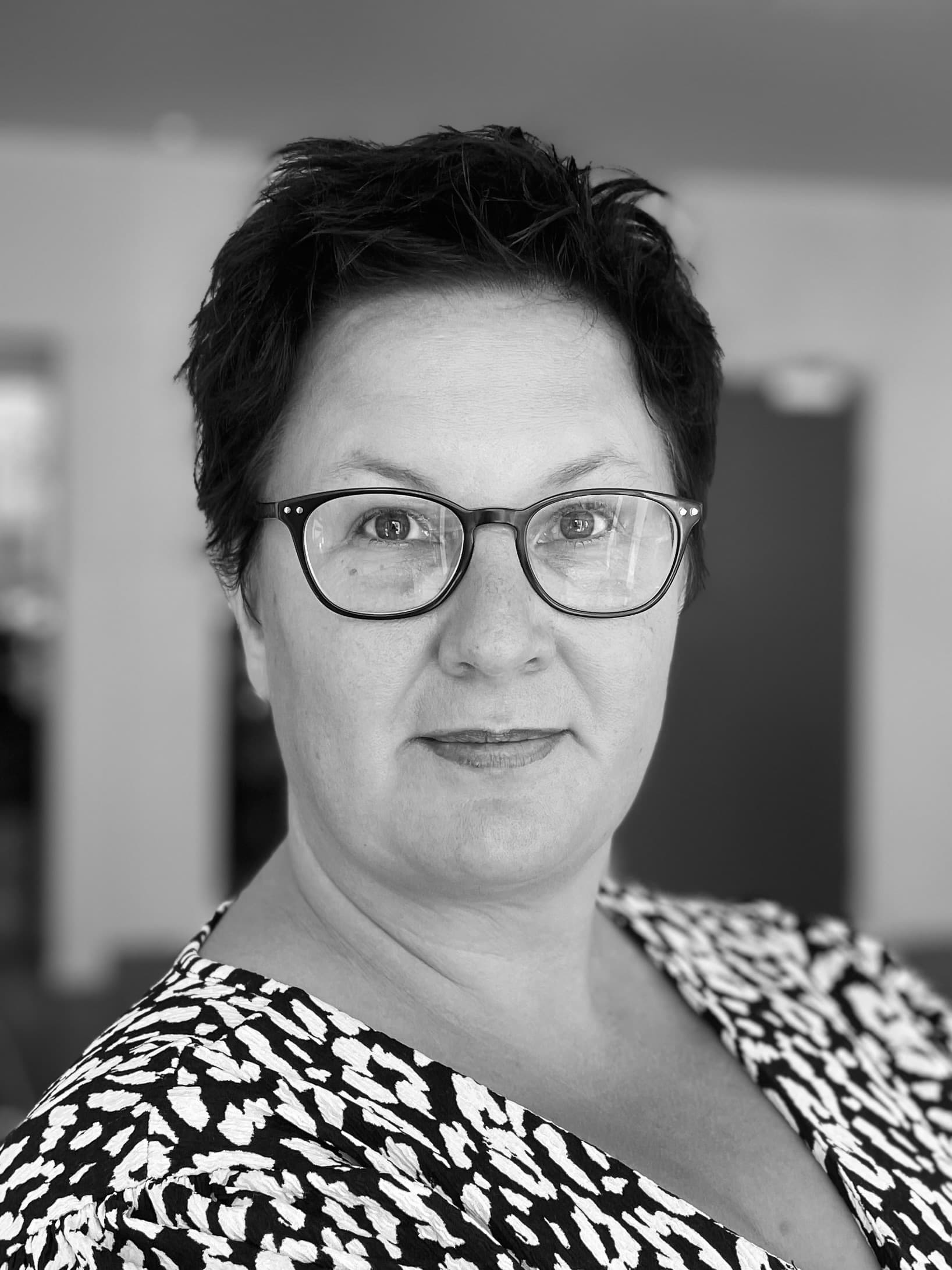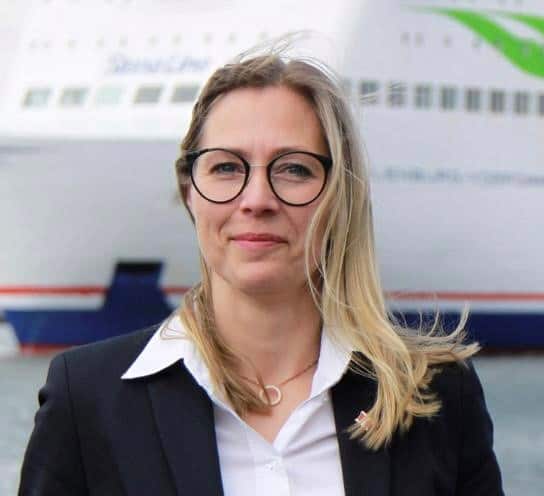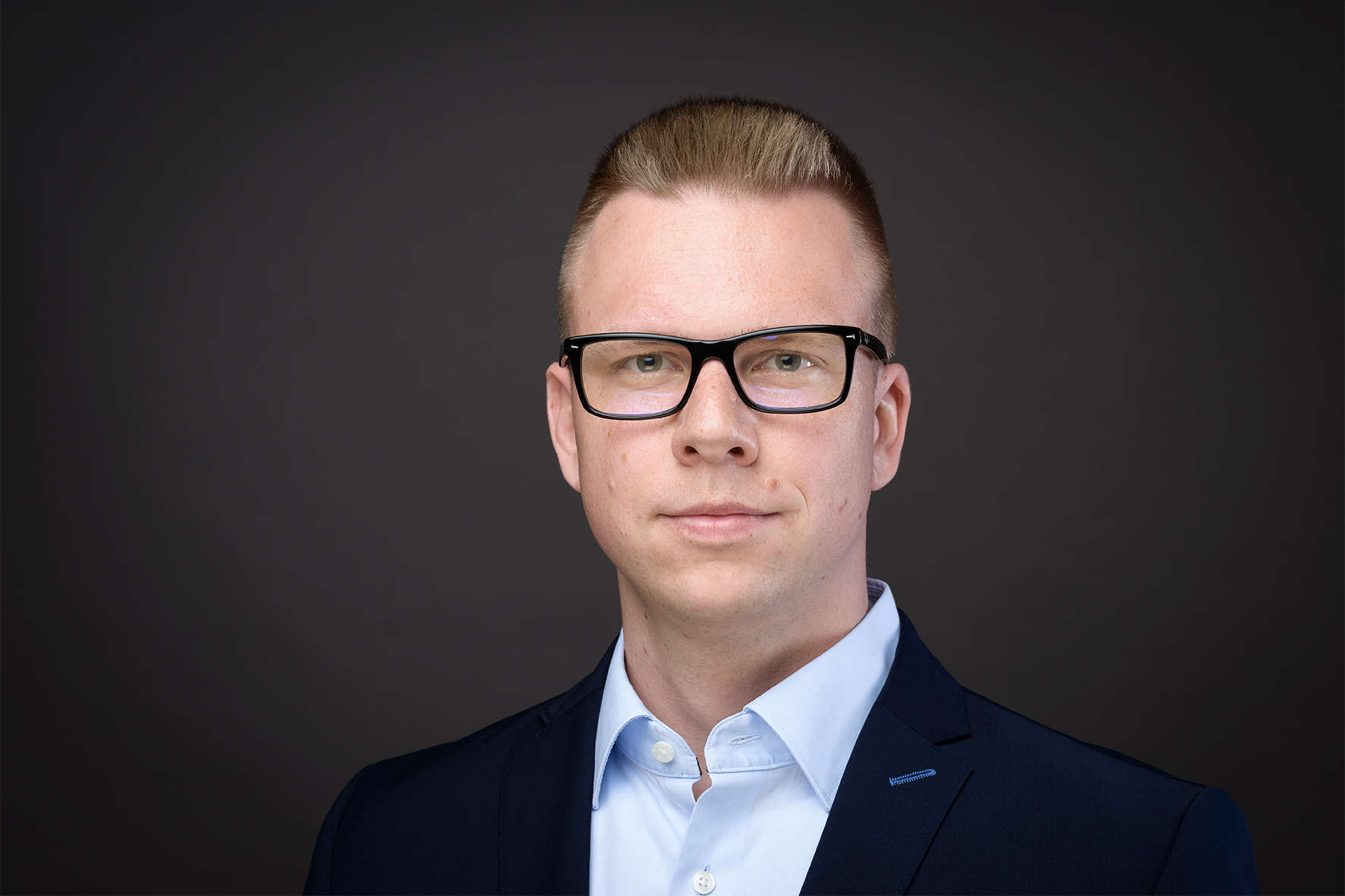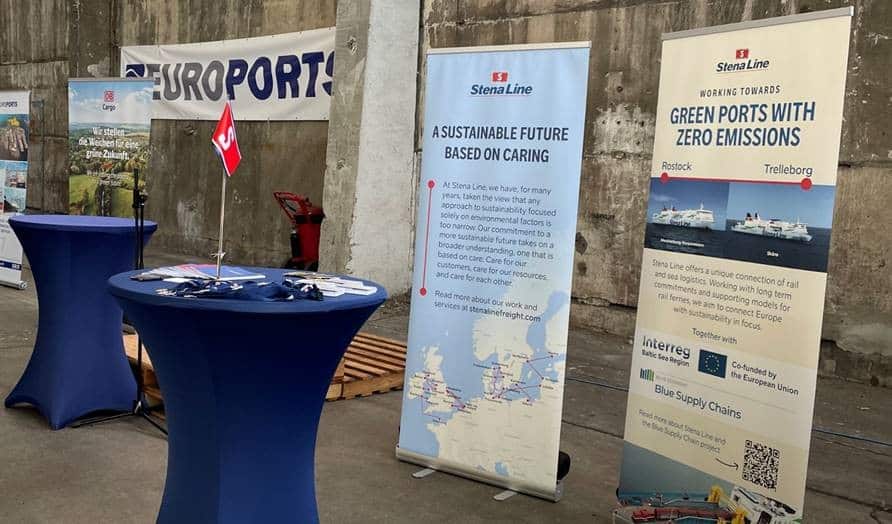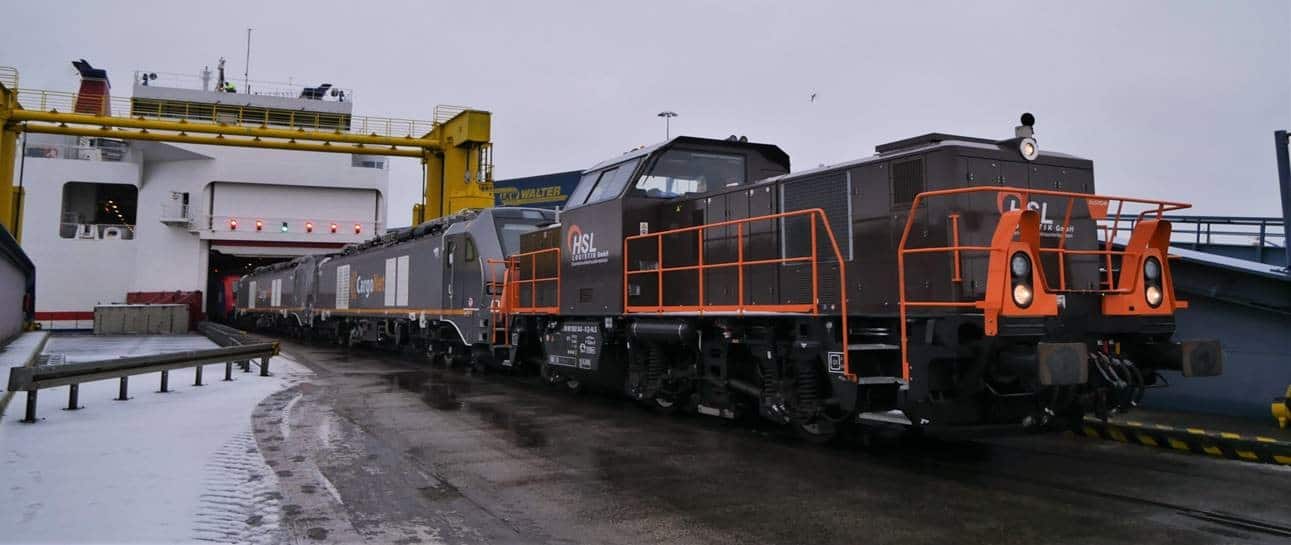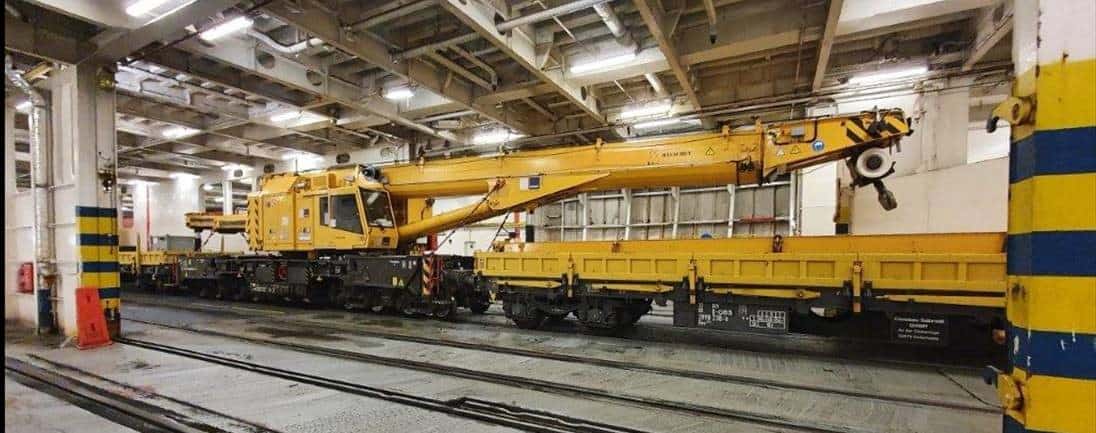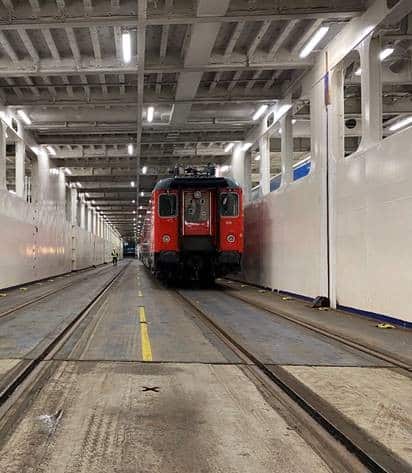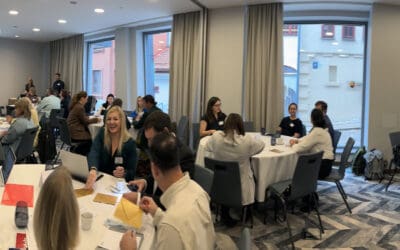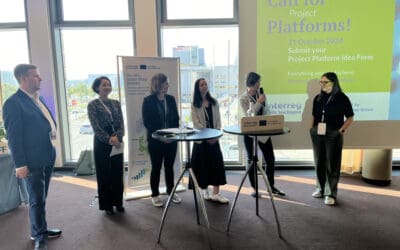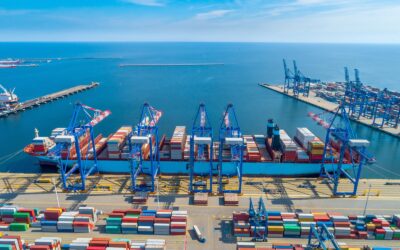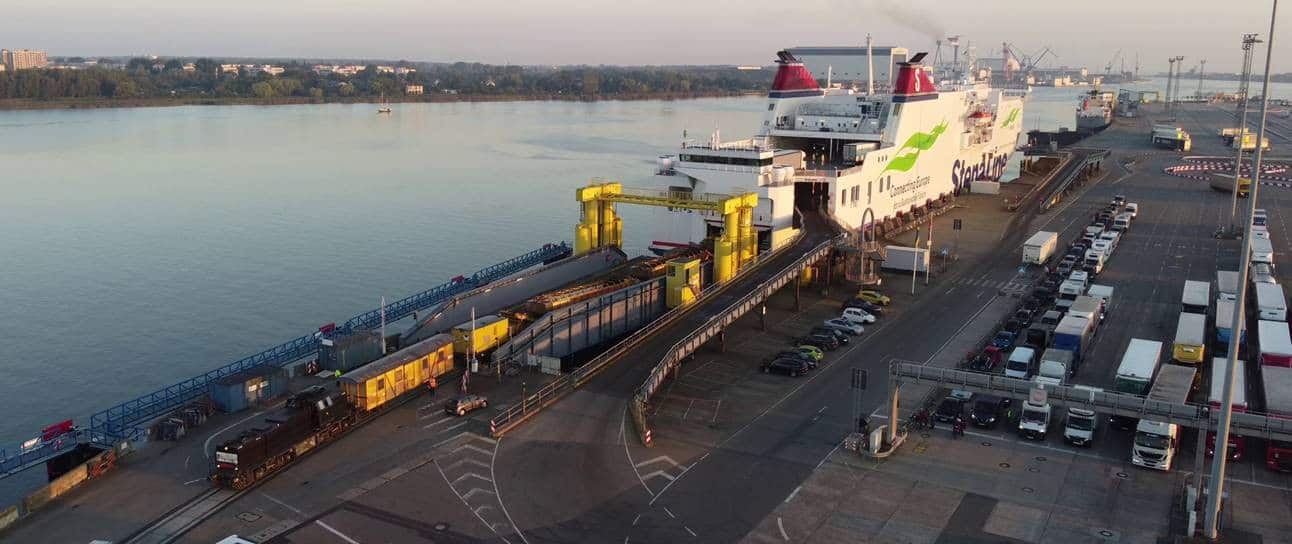
14 February 2024
A greener future for port operations
Written by Anna Zaccaro
The Blue Supply Chains project supports port authorities and operators in decarbonising port operations. It advances electrification, provides strategies for alternative fuels and sets-up green transport chains. Katrin Verner, Maria Tornvall, and Christopher Schnur from the project partner Stena Line explain how a ferry operator can use alternatives for getting goods to people in a greener way.
In light of the EU Green Deal, Europe and the Baltic Sea Region are facing a big challenge: cutting down on transport emissions. But current policies aren’t cutting it, especially for ports. Smaller and medium-sized ports, often left out of national plans and lacking resources, are key players in the transport chain. They handle everything from cargo to energy, but going green isn’t easy. That’s where the Blue Supply Chains (BSC) project steps in. It’s all about teaming up and sharing knowledge to help ports lead the charge towards eco-friendly transport, showing the way for the whole region.
How do you think your project will contribute to reaching EU climate goals in BSR ports?
Maria Tornvall, Group Head of Sustainability
Climate change, and reducing climate affecting emissions is the single most important topic for the maritime industry as well as for Stena Line. We have an obligation to provide solutions to bring down emissions in our fleet and our operations and we work hard to do so. Reducing emissions in ports and along the transport chain is more than a part of this project, it is our dedicated company ambition, and we are following a large variety of initiatives and steps to get closer to it. We believe that combining the two most efficient modes of transport – ship and rail – can play a vital role to achieve climate goals on transport. But rather than believing, we want to know! In this project, we strive to get more transparency in the CO2 impacts of rail transport between Scandinavia and Germany, e.g. by assessing various routes in rail transports, but also shunting operations in ports or at nodes. We are also evaluating various emission calculators, that account for the specifics of each transport and mode. Like that, we deliver guidance and transparency to our customers while getting further indications on improving our own performance. Last but not least, the close cooperation and exchange with our international partners pays off in this regard, as we all share similar goals and benefit from each other´s experience.
What’s the challenge that you are addressing in your project?
Katrin Verner, Freight Commercial Manager Germany
We as Stena Line offer a standalone project: Rail ferries on our Rostock-Trelleborg route, that allow direct rail transports over the Baltic Sea. This service provides a valuable and necessary connection for rail transports between Sweden and Germany. It is the stable, reliable – the only! – alternative to the overcrowded land railway via Denmark and the Öresund. In our project, we want to promote this unique rail freight alternative. And we want to find out more about the potential of our service in the long-term. Cooperating with project partners, finding out more about port capacities and, even more, the specific customer demand in Swedish-German rail transport system, really helps us making this assessment.
What solution are you developing? Why do you need a transnational project for it?
Katrin Verner, Freight Commercial Manager Germany
Together with our project partners, we are conducting analyses on the capacities on the ferries and in the ports, the customer potentials, costs, but also sustainable topics. These analyses will give us input to further developing the route Rostock-Trelleborg and its ferries. Furthermore, we are also carrying out marketing efforts within the project to attract more and new customers to our ferries. For instance, we are planning three on-board workshops with customers to demonstrate our product. Due to the strategic importance of rail redundancy in the corridor, we are also extending information to the political sphere. Within this project we are furthermore investigating together with our project partner Modility, how to make the ferry visible on modilities booking platform. With 18 routes in 9 countries, Stena Line´s business, by nature, is transnational. The project framework helps us to bundle data and input from all interest parties in the Rostock-Trelleborg route, be it the partners like the Ports of Trelleborg and Rostock or customers. We are getting new inside know-how, experience, and various international perspectives on our product, which is very helpful for our project case. We are curious to even further understand the trigger points that enable us to increase rail volumes and customer portfolio.
#DidYouKnow
Port of Hamburg Marketing (POHH) leads the partnership, collaborating with port authorities from Germany, Sweden, Estonia, and Denmark to develop and pilot emission reduction solutions, while Higher Education and Research Institutes from Poland and Sweden provide structural support. Private enterprises bring expertise in emission reduction measures, and Business Support Organizations ensure marketability and solution transferability. National transport authorities and legislative bodies complete the partnership, aiming to align alternative fuel supply infrastructure and reduce emissions across the Baltic Sea Region.
Reflecting on the journey of the project since its launch in January 2023, what have you managed to achieve so far?
Christopher Schnur, Rail Coordinator
At first we have met plenty of new people that are all participating in this project. The exchange of experience and input was highly beneficial, and we immediately started developing new ideas. Besides that, we have started the first analyses and already received some results that are supporting our development of the rail ferry route. Furthermore, we have participated and organized customer events to be more visible and find new project partners for our upcoming on-board workshops. We had evaluations about the transport of new goods and business cases and increased our own knowledge about our customers, product and ferries. We also did a rail promotion video for internal knowledge sharing.
How do you feel as part of a transnational project? What are your best experiences?
Christopher Schnur, Rail Coordinator
We have developed new cooperations with project partners we did not know before, which is extremely valuable. Due to the dialogue process, new ideas and thoughts came up, so we are very glad to participate in this transnational project. Our best experiences are the in-person meetings in which we have very productive meeting sessions, supporting deep dive analyses and defining root cause, together with project partners as well as with customers and other stakeholders. Building great personal relationships and getting to know more about the people and their respective home countries, is an important part, too.
Apply NOW!
Do you have a smart project idea how to bring in innovative, water-smart and climate-neutral solutions for the benefit of people around the Baltic Sea? Do you want to develop and apply your solutions transnationally in regions around the Baltic Sea? Would you like to show how the EU values stand for real actions?
We just opened a new call for application. Visit the Gateway for applicants to get all the details
Scroll through the gallery
More recent news
From shaping applications to shaping the region’s future!
Almost 50 dedicated applicants met in Riga, Latvia, on 26 September, to dive deep into the nature of project platforms, the Programme’s main capitalisation instrument, and finetune their applications.
Committed to the region, together!
The Kiel Fjord glittering in the sunshine, ships sounding their horns and seagulls squawking provided yet another perfect Baltic Sea backdrop for the 32nd Annual Conference of the Baltic Sea States Subregional Co-operation (BSSSC) on the 19-20 September 2024. On 20 September, the Interreg Baltic Sea Region team organised a workshop at the conference.
Collaborating for Enhanced Resilience: Maritime Example
Discover how Interreg Baltic Sea Region projects are revolutionising maritime safety. Such innovative approaches are essential for ensuring safe navigation in the Baltic Sea.
Collaborating for Enhanced Resilience: Social Example
Discover how Interreg Baltic Sea Region projects are enhancing social resilience. Together, these initiatives are crucial for building a stronger Baltic Sea region.



